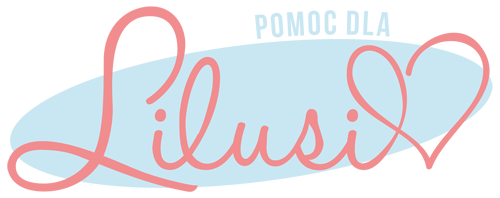Liliana is 2 years old, but her development stopped at the 6th month. Stiff legs, taut arms and clenched fists prevent her from sitting. Due to slender neck, she cannot hold her head upright. Plus skin problems: oozing wounds all over her body. Doctors wring their hands, but we do not give up, so we ask for your help.
When Liliana was almost a year, we began to worry: she did not sit or wave goodbye. She was very quiet. We noticed increased muscle tension in her limbs and reduced tension in her spine. We shared our concerns with different paediatricians and physiotherapists, but they all said that each child developed at their own pace, and we did not have to worry.
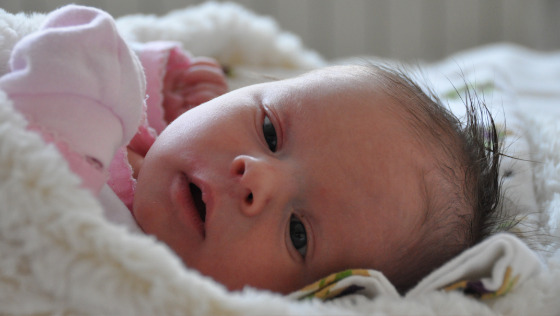
Then we visited a neurologist, who immediately referred us to the Institute of Mother and Child in Warsaw to see exactly what was going on. The first EEG showed no alarming symptoms, yet the brain MRI demonstrated that substance in Liliana’s brain that is responsible i.a. for moving and speaking stopped developing in the 6th month. Liliana was already one year old. This is called a demyelination and may be a symptom of various kinds of diseases.
The doctors began to search for the actual disease. Numerous tests and consultations with Polish neurologists did not contribute to our quest. Subsequent results were contradictory. In the end, a renowned Polish paediatrician established the first diagnosis: autoimmune encephalitis. It sounds grand, but gave us hope, since the disease can be cured.
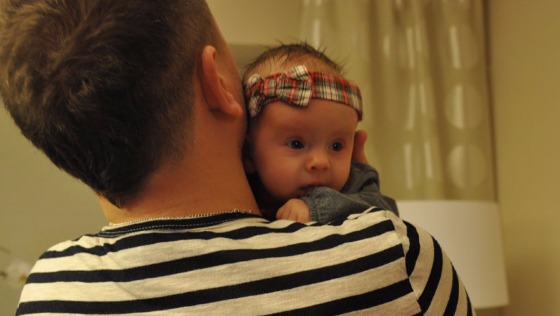
Classical treatment, administration of steroids and immunoglobulin, was applied. When Lila received the first infusion, increased tension and even spasticity temporarily subsided, but there was no expected improvement. Infusions were repeated in May – no clear improvement, it even seemed that steroids intensified some symptoms. In July Lila only received immunoglobulin, but this time there was no improvement at all. Lila had the same symptoms as eight months before.
Another brain MRI in August (i.e., 8 months after the previous one) showed that, despite aggressive treatment, myelin in Liliana’s brain had not developed. We went back to the starting point.
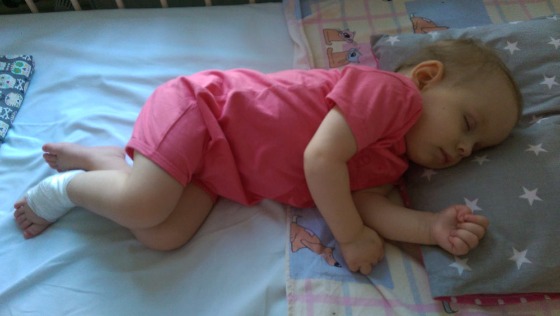
At that time, we started writing to hospitals and research centres in the whole world. We sent test results, asking for help. It was the first time we heard about Aicardi-Goutières Syndrome (AGS). Doctors from Rotterdam suggested that Liliana may suffer from this rare, serious and incurable genetic disease and recommended genetic tests called WES.
Initial results showed one genetic mutation, but, according to Polish experts, it only caused skin problems, not neurological ones. But, to our despair, a Professor from Paris, a world-renowned expert in AGS, whom we sent the preliminary WES results, claimed that, unfortunately, recent studies had shown that even this one mutation might indicate AGS, the rarest and least known type. He recommended doing confirmatory tests, which confirmed genetic mutation ADAR1, that leads to AGS type 6. There are probably only 7 people with this type in the world.
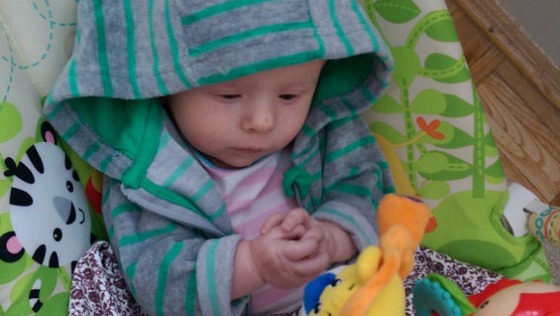
What is AGS? In short: a genetic defect that causes physical and mental impairment. This type of AGS has been diagnosed in a few people throughout the world. Treatment is only symptomatic (rehabilitation, prevention of malnutrition, respiratory problems and other types of complications), but a few research centres (Philadelphia, Paris) are looking for a drug that could help people with AGS.
However, there is a light at the end of the tunnel… We have received an email from Philadelphia that we are welcome there in January or February for thorough examination and lab tests that will last for at least 10 days. Based on these tests and overall clinical picture, Liliana may qualify for the clinical research process. If so, we’ll have to fly to Philadelphia very often (at least once every 3 months). Effects of the research are yet unknown, but we will do anything to help Liliana.
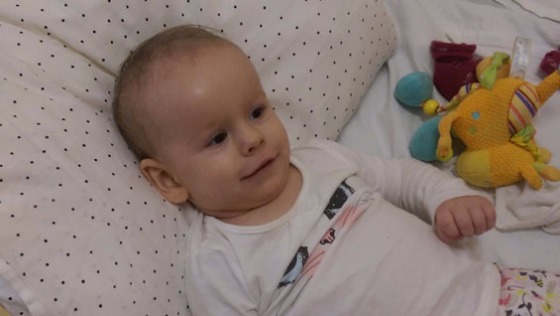
Currently, we need to cover Liliana’s professional physiotherapy 5 times a week, leg orthoses and medical consultation. We have paid for WES and will have to finance botulinum injections. But we are able to cope with this. Yet, we will not able to go abroad for experimental treatment without your help!
We wholeheartedly ask you for even the smallest payment and help in spreading information about this collection!
Foreign payments:
PL31109028350000000121731374
swift code: WBKPPLPP
Bank Zachodni WBK
Title: „467 help for Liliana Lesniak”
Address: Poznanska 14/8, 84-230 Rumia, Poland
https://www.youcaring.com/ags
Online collection in GBP:
https://gogetfunding.com/liliana/
Donate via PayPal:
